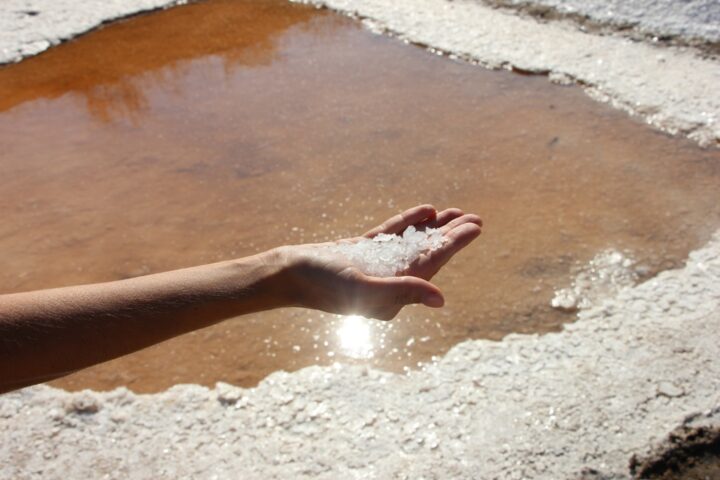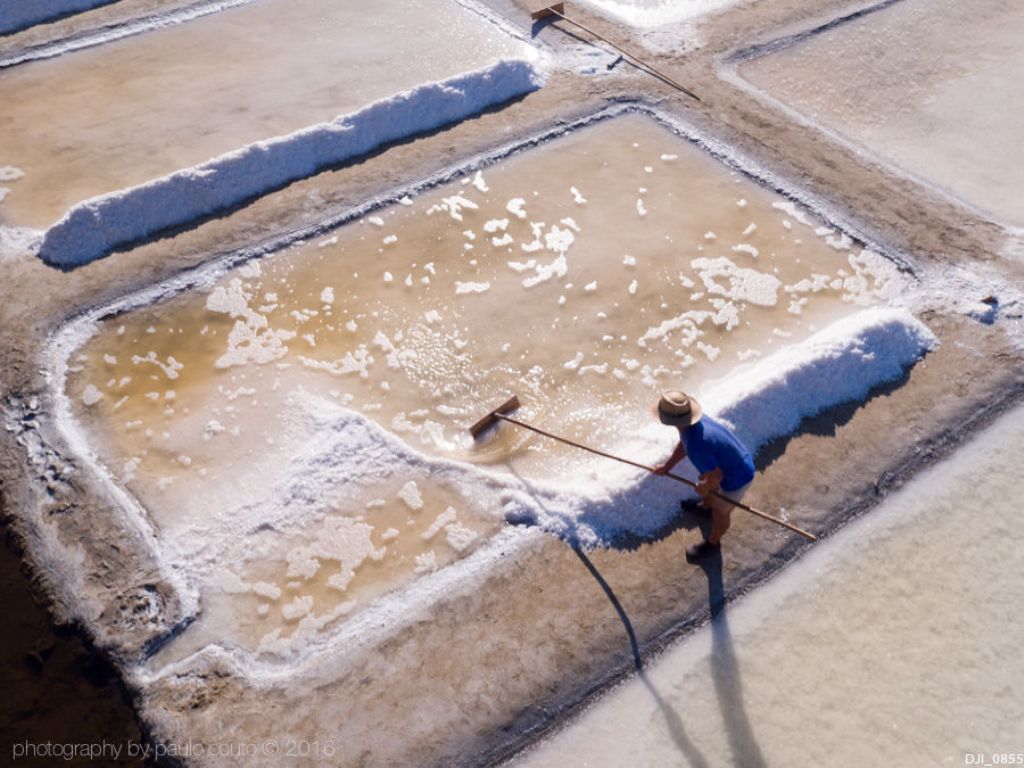The producer cooperative “Terras de Sal”, from Castro Marim, accuses the European Union and Portugal of being “at risk of giving in to the lobby of multinationals, in the concept of organic salt”, putting into question the survival of artisanal producers.
At issue is a report by the European Commission, published in August, which proposes that "all types of salt, even industrially processed and non-environmentally friendly ones, should be included with the label, ignoring the recommendations of their own experts."
On Thursday, the 28th, there will be a decisive meeting with the Organic Production Committee (COP), "where the guidelines on biological salt will probably be concluded".
According to the cooperative, "producers of traditional artisanal salt are against this new regulation", which they consider "a serious failure in consumer protection and a threat to the survival of traditional salt production."
Thus, they ask for an urgent position from the Portuguese Government to amend this proposed regulation.
In a report by a group of experts in organic production, published in August by the European Commission, there is a proposal on "which salt should be considered organic" and receive the respective seal. Before that, and until now, "salt was not considered to be subject to organic certification".
This document, "which has a very liberal vision", suggests that "virtually all types of salt can benefit from the BIO label of the European Union (EU), which seriously concerns European artisanal salt producers, who want to be heard from way to reverse this possibility», explains “Terras de Sal”.
According to the cooperative, "the report in question ignored the position of most salt specialists who were consulted by the European Commission for this purpose", having been "hired by international public tender, a group of four salt experts, to assist in this process the specialists for technical advice on organic production [EGTOP]».
“Three of the experts (one from Spain, one from France and one from Austria) were quick to say that the salt extracted from the mine and that produced industrially in a vacuum (vacuum salt) are unable, given their production methods, to receive the seal of organic product, but the fourth specialist, German, suggested precisely the opposite», stresses the cooperative.
However, the report, presented in July 2021, shows that "only the position of the German expert was taken into account, which was already discussed with representatives of the Member States during a meeting of the Organic Production Committee (COP)".
At this meeting, «Portugal simply did not comment, showing itself aloof from the issue, unlike France, who stressed a tougher and more realistic position, warning that several methods proposed by the EGTOP report are not in compliance with the rules of organic salt, and of Spain and Germany that requested a new meeting for debate».
However, the European Commission has agreed to discuss biological salt in more depth at the next COP meeting, which is scheduled for this Thursday, October 28, and where "the biological salt guidelines will likely be finalized."
«Given the imminent danger of any salt being considered organic within the European Union», producers in Spain, France and Portugal «are mobilized against what they consider to be the “total subversion of the concept of organic salt” in favor of economic interests of industrial salt and ask for the urgent support of the Governments of their countries to mobilize alongside this cause in order to avoid the “attack to the future of organic products”, refers to “Terras de Sal”.

Andrea Siebert, administrator of the company "Marisol Sea Salt" which sells Atlantic sea salt and Flor de Sal from Olhão, was part of the restricted group of four experts who advised the European Commission's EGTOP and denounced a "clear and dangerous transfer to economic interests of industrial mine and vacuum salt by the European Commission'.
The salt specialist guarantees that “her recommendations, along with her French and Spanish colleagues, go against the recommendations that are now included in the report that will serve as the basis for the regulation of the attribution of the biological seal.
“At a certain point in the process, the German expert colleague left the group's work. And while the three of us presented a joint proposal, he chose to present only his own, which considers that the mine and vacuum salt should also be included with the biological label, in addition to allowing practically all subsequent industrial treatment processes and the addition of chemicals to salt, all techniques that are not environmentally friendly and unsustainable, being contrary to the objectives defined for the European Regulation on organic products», reveals Andrea Siebert.
"The report is done, but we believe that it is possible to reverse the situation if Portugal joins the other countries that are raising their voice against the subversion of the biological concept", defends the expert who, like her Spanish and French counterparts, warns, also, that what is at stake "is the economic and ecological future of salt production, compromising, from the outset, the green path that the European Union says it is committed to increasing."
For the European Federation of Hand-picked Sea Salt Producers, the content of the EGTOP report “is extremely worrying, as the European Commission is preparing to make virtually all salt production methods eligible for organic labeling. existing ones, including less environmentally friendly ones such as mine salt and vacuum salt", considering that "this proposal would clearly go against the objectives and principles of EU Regulation 848/2018 on organic production".
Also SALIMAR, representing almost all sea salt producers in Spain, “strongly contests the document”, with the support of the Spanish Government. It considers that “the definition of biological salt should be that of sea salt produced exclusively by evaporation in the sun and with minimal and very controlled post-collection treatments”, concludes “Terras de Sal”.



















Comments